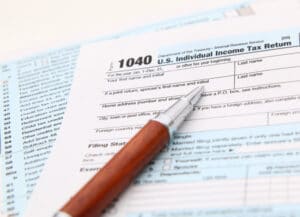Amending a Tax Return – Not always needed or wiseJuly 25, 2023
Errors in the IRS’s favorErrors discovered that lead to an additional tax obligation are legally required to be fixed by filing an amended tax return. This is especially true if the discovered error is from missing information found on a Form 1099 or Form W-2. Remember, information is being reported to the IRS and matching programs will typically catch the error. Errors that result in lower taxIf correcting the error or omission results in a large, additional refund, the answer is usually obvious. File the amended return! But this isn’t always the case. 1. Your tax return is now open for a longer period of time. Federal tax returns are typically subject to audit for three years after the original tax return due date OR the date the return was filed whichever is later. If you file an amended tax return, the audit clock may change based on the amended return filing date and degree of change requested. It may trigger a request from the IRS to extend the audit review period. The refund also resets the IRS erroneous refund recovery statute, adding two to five years of possible review based upon the date of the latest tax return refund. 2. The amended return may be examined. Amending a tax return could put a spotlight on your tax return. The IRS has certain topics that often trigger individual examination when amended returns are file. Amended tax returns based on things like the Earned Income Tax Credit, Small Business Income and the Research Tax Credit for small businesses, could result in a visit from your local IRS examiner. 3. Amending one tax return may require amending others. Making a minor change in one year may require you to make changes in other tax years. Is it worth it? 4. Other taxing authorities take an interest. Making a change on your federal tax return may require you to file an amended state or local tax return. Do not assume that an amendment in your favor at the federal level will necessarily be in your favor on the state and local level. 5. Don’t expect the refund to be timely. Amended tax returns can take a long period of time to be reviewed. There have been cases where the IRS has delayed initial review of an amended return for more than a year, then decided to examine the return. While not typical, the process could take up to 1 1/2 years to resolve. 6. Timing is important. Remember, there is also a time limit to request a change in your tax return and receive an additional refund. This limit is typically three years after the initial filing deadline of the tax return. Make sure you file these tax returns using certified mail. Should the IRS delay responding to your amended return, you may need to prove it was filed timely. 7. You have a chip in your pocket. If the refund amount is not large enough to justify an amended tax return, you should still keep the documentation. Should you be chosen for an audit, you can often present your case at that time to offset any additional tax. While finding an error or omission on your tax return can be unsettling, rest assured that there are ways to fix the problem, but it is often worth taking a balanced approach to determining the best solution. |
|
 There’s usually an element of relief after your annual tax return has been filed. But what do you do if you find an error on your tax return? Should you always file an amended return? Here are some things to consider.
There’s usually an element of relief after your annual tax return has been filed. But what do you do if you find an error on your tax return? Should you always file an amended return? Here are some things to consider.